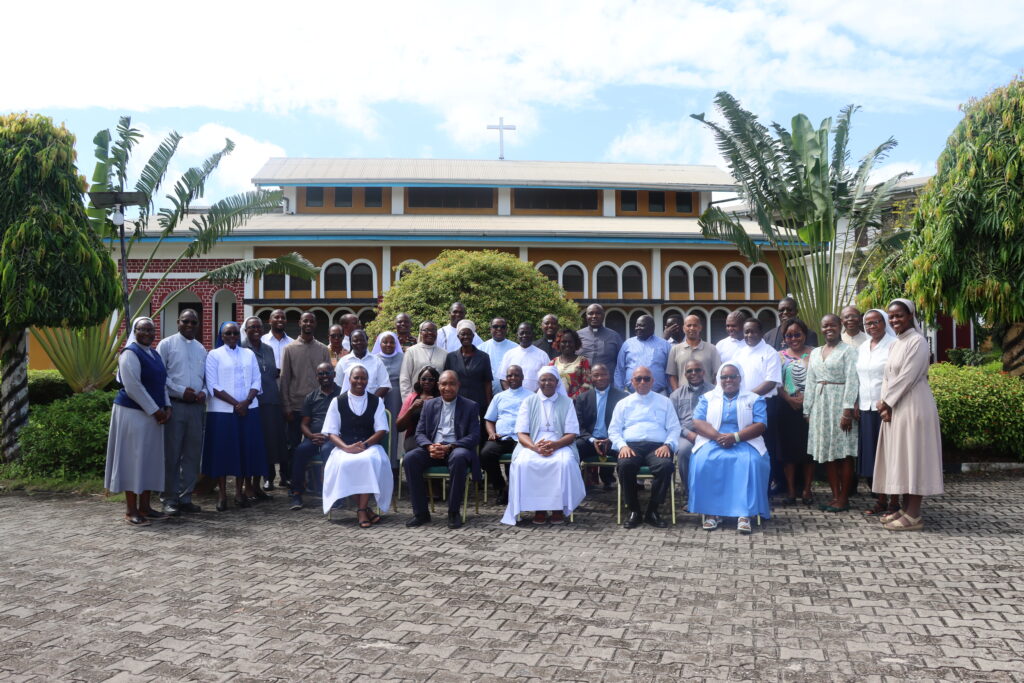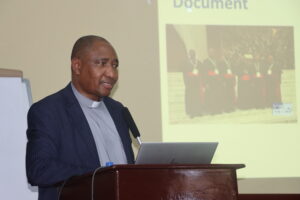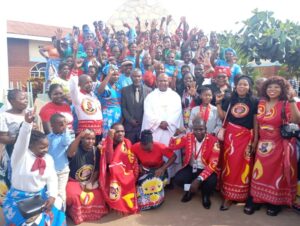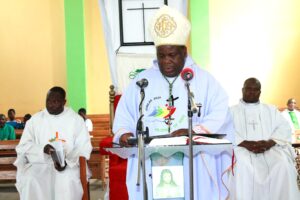AMECEA: “Synodality, a Call to Renewal,” AMECEA Secretary General to Trainers on Living the Synodal Spirit

Sr. Jecinter Antoinette Okoth, FSSA
In a strong call to deepen the spirit of synodality within the Eastern and Central region of the African continent, the Secretary General of the Association of Member Episcopal Conferences in Eastern Africa (AMECEA) has expressed the need to understand synodality as a call to renewal and for the Church to undergo a spiritual, pastoral, and structural transformation.
In his address to about 35 participants during the Training of Trainers (ToT) synodality workshop at Kurasini, Tanzania, Fr. Anthony Makunde emphasized that, “Reform is not just institutional or structural, but spiritual and pastoral, arising from a call to deeper fidelity to Christ.”
He stressed to participants from the AMECEA and the Association of Consecrated Women in Eastern and Central Africa (ACWECA) region, that “The Holy Spirit constantly renews and vivifies the Church.”
The week-long training from 19th to 24th May, that has brought together the synod contact persons from the national associations of sisters and episcopal conferences, the parish priest synod delegates who participated in the Rome meeting, and lay representatives, aims to create a regional pool of trainers on living the Spirit of Synodality in the AMECEA and ACWECA regions, and equip them as well as local Church leaders with theological, pastoral, and practical tools to animate local communities in embracing the ecclesial renewal and cascade the implementation phase of the Synod on Synodality in the region.
Expounding on synodality as a call to renewal, the Tanzanian cleric Fr. Makunde pointed out that synodality itself is a method of reform through listening, dialogue, and discernment with the people of God. For the success of this process he narrated further, “Reform should begin with personal and communal conversion.”
Even though the Church is ‘Holy,’ Fr. Makunde said referencing the document Lumen Gentium No. 8, it is “always in need of being purified, and constantly pursues the path of penance and renewal.”
In this case, understanding the Church as an entity which reforms itself involves appreciating the dynamic and living nature of the Church throughout history, the “Idea of which is rooted both theologically and historically in the Church’s understanding of its mission, identity, and responsibility before God and the world.”
Fr. Makunde told the participants in the words of the late Pope Francis, that the synod’s Final Document “gathers the fruits of a journey marked by listening of the people and the discernment of pastors.” Thus, he added, “Synodality expresses awareness that a call to mission is at the same time a call to conversion of each local church and of the whole church.”
He disclosed to the participants on the first day of the training, that the Final Document has re-emphasized baptism as the root of variety of charism, vocation and ministries. The document has also stressed the need of formation on synodality at all levels starting from the family, and has acknowledged Small Christian Communities (SCCs) as an ideal model of living synodality while expanding women’s access to leadership roles in the Church.
The Final Document further encourages regular diocesan synods, emphasizes on increased collaboration of the laity in the governance of the church and stresses on the financial transparency and abuse prevention while safeguarding privacy and confidentiality among others.
As the accompaniment process of the implementation phase of the Synod was officially declared by the General Secretariat of the Synod early this year, Fr. Makunde notes that it is now time to “explore ways of engaging the clergy, religious and the laity in the synodal journey through the diocesan and national associations, strengthen the synod method of conversation in the spirit in the ecclesial model of SCCs and call for active engagement in the on-going study of the 10 themes the study groups are reflecting on.”
For the successful accompaniment of this implementation phase, the AMECEA Secretary General recommends translation of the Final Document into local and national languages, the message be disseminated to the Family of God in the region and possibilities of trainings on synodality be initiated.
Additionally, he said, the people of God need to look into possibilities of initiating schools of synodality is various forms and that member conferences to take synodality as a cross-cutting item in all the pastoral programs. There is a need to introduce the subject of synodality in the houses of formation for clergy, religious and catechists and further enhance the existing collaboration of the Bishops and Religious superiors in the AMECEA and ACWECA regions.

